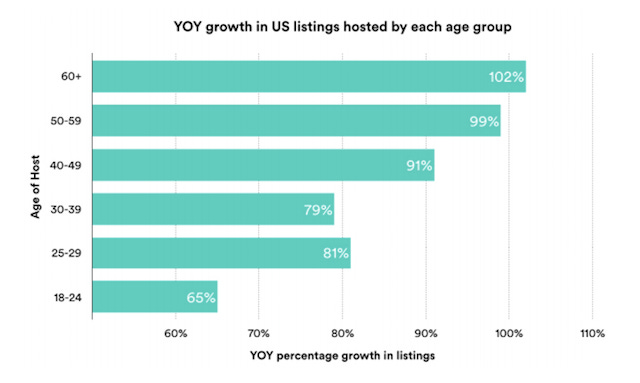Surge fixing.
There’s no shortage of lawsuits dogging Uber, but the antitrust complaint that a federal judge declined to dismiss last week is definitely among the weirder ones. The class action was brought on behalf of Spencer Meyer, an Uber user, in December in the Southern District of New York. It alleges that Uber CEO Travis Kalanick has conspired with Uber’s drivers to fix prices via the Uber app, hurting customers like Meyer:
Kalanick is the chief architect of the price-fixing conspiracy. The driver-partners agree to adhere to it because the artificial rates set by the pricing algorithm are higher on average than the fares that Plaintiff and Class Members would otherwise be charged in a competitive marketplace.
Also:
As a driver, Kalanick has competed directly with other drivers using the Uber App.
This might seem like an odd detail, but it’s actually quite important. If you read the complaint all the way through, you’ll see it alleges two things: “a series of vertical agreements between Kalanick and each of the Uber driver-partners” and “a horizontal agreement among the Uber driver-partners to adhere to the Uber pricing algorithm.” Vertical agreements involve a business at different levels, e.g., a manufacturer and a distributor. Horizontal means among competitors at the same level.
I’m not a lawyer, but according to people who are, the key point here is that antitrust law is much stricter on horizontal agreements than vertical ones. That’s why this complaint is being brought against Kalanick—since he’s driven for Uber at some point, the plaintiffs can argue that he’s not just the CEO, but also as a person who has orchestrated a horizontal price-fixing conspiracy among his fellow drivers. A similar complaint against Uber the company would probably be less potent, since Uber’s agreements with drivers are more likely to land in the vertical camp. Anyway, calling out Kalanick makes the suit flashier, but at least per the logic, it seems like Meyer could just as well have sued every single driver on Uber’s platform. You can imagine how popular that would have been.
Five-star seniors.
Airbnb is increasingly run by seniors, particularly senior women. According to a report the company released last week, the number of 60-plus-year-old hosts on Airbnb grew 102% last year, compared to 85% growth among all US hosts. Airbnb finds that these 60+ women are “consistently the best Airbnb hosts in the United States,” with a “higher percentage of five star reviews than any other age and gender combination among hosts.” Most of them are also “empty nesters who host to make ends meet.” The report doesn’t really offer much explanation for why this is, but it makes sense that older people who already own homes would be turning to Airbnb for some extra cash. It also seems possible that they’ve been a little behind on the Airbnb curve until now, and therefore are outpacing other age groups in terms of growth as they catch up.
 Amazon assembly.
Amazon assembly.
This time last year, Amazon launched Home Services, a let-me-do-that-for-you platform much like TaskRabbit. Amazon shoppers buy a lot of things that require assembly and installation, so the basic idea behind Home Services was that Amazon could make money helping them get it done. Home Services started in four cities and today is in 30. It offers more than 1,200 services, most of which are tied to an Amazon purchase. (Popular requests include mounting flat-screen TVs and setting up treadmills.) In classic on-demand fashion, the workers on Home Services aren’t Amazon employees, but rather independent contractors who advertise their skills on Amazon’s network. No word on how the goat grazing business has been.
Regulatory update.
South Dakota passed House Bill 1091, also known as the “Uber Bill,” which lays out rules for how Uber and similar ride-hailing services can operate. (Uber isn’t currently active in South Dakota and hasn’t said whether it plans to come anytime soon.) The legislation looks a lot like what Uber has backed elsewhere in the country, though this one notes that a “motor vehicle chassis … on which is mounted a cornsheller, grain cleaner, feed grinder, grain and alfalfa feed mixing machine, haystack mover, sawmill, water well drilling equipment, power shovel, ditchdigger, mobile crane …” and so on will not be included in the definition of commercial vehicles for the purposes of the bill.
Over in Texas, Corpus Christi’s City Council is postponing a vote on whether to require fingerprint-based background checks for ride-hailing drivers, something that both Uber and Lyft strongly oppose. But the real innovation is happening in Austin, where Uber is now apparently serving up politics with your takeout lunch.
Other stuff.
Gett bids to be the UK’s biggest black cab app. Sidecar co-founder ditches GM for Uber. “Secretive” Uber competitor is doing a lot of press. David Chang thinks restaurants are broken. Deep freeze in tech IPOs. There is an Uber for blood. Uber policy purge. Ridesharing predictions. Transcript with Travis. Airbnb nomad.
Thanks again for subscribing to Oversharing! If you, in the spirit of the sharing economy, would like to share this newsletter with a friend, you can direct them to sign up here. Send tips, comments, and alfalfa feed mixing machines to oversharingstuff@gmail.com.



